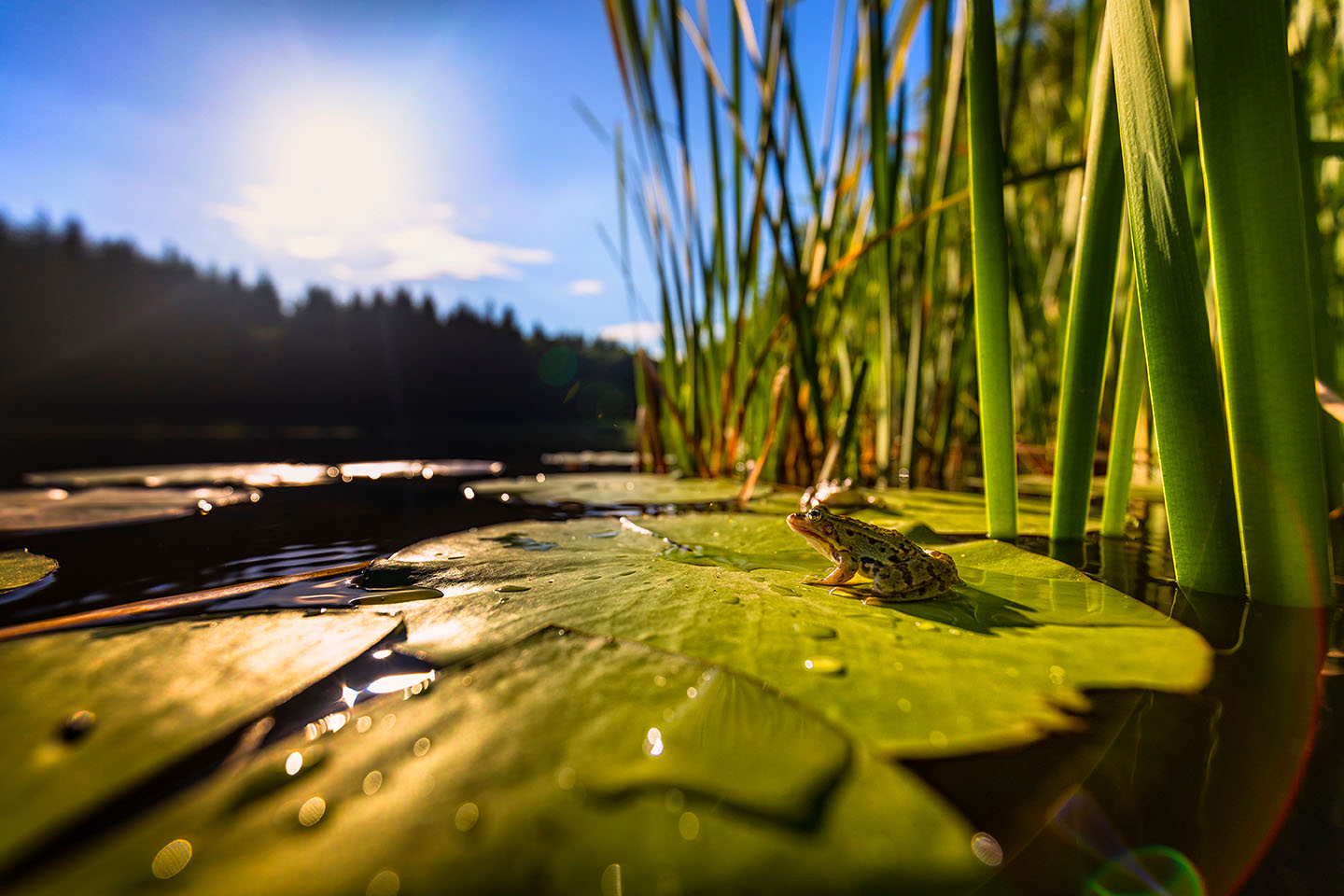
pond
Definition
A pond is a small body of water that is usually surrounded by land. Ponds are typically shallow, with depths of less than 10 feet. They can be found in a variety of habitats, including forests, fields, and even cities.
Ponds are home to a variety of plants and animals. Some common pond plants include algae, lilies, and rushes. Some common pond animals include frogs, turtles, fish, and insects.
Ponds play an important role in the environment. They provide a habitat for many different species of plants and animals. They also help to filter water and regulate the climate.
How can the word be used?
The pond is full of ducks.

Different forms of the word
Noun: a small body of still water, typically one that is smaller than a lake.
Verb: to form a pond.
Etymology
The word "pond" comes from the Old English word "pand", which means "enclosure". The word "pond" originally referred to a small, enclosed body of water, such as a fishpond.
The first recorded use of the word "pond" in English was in the 10th century.
Question
What can be found in ponds and why are they important for the environment?